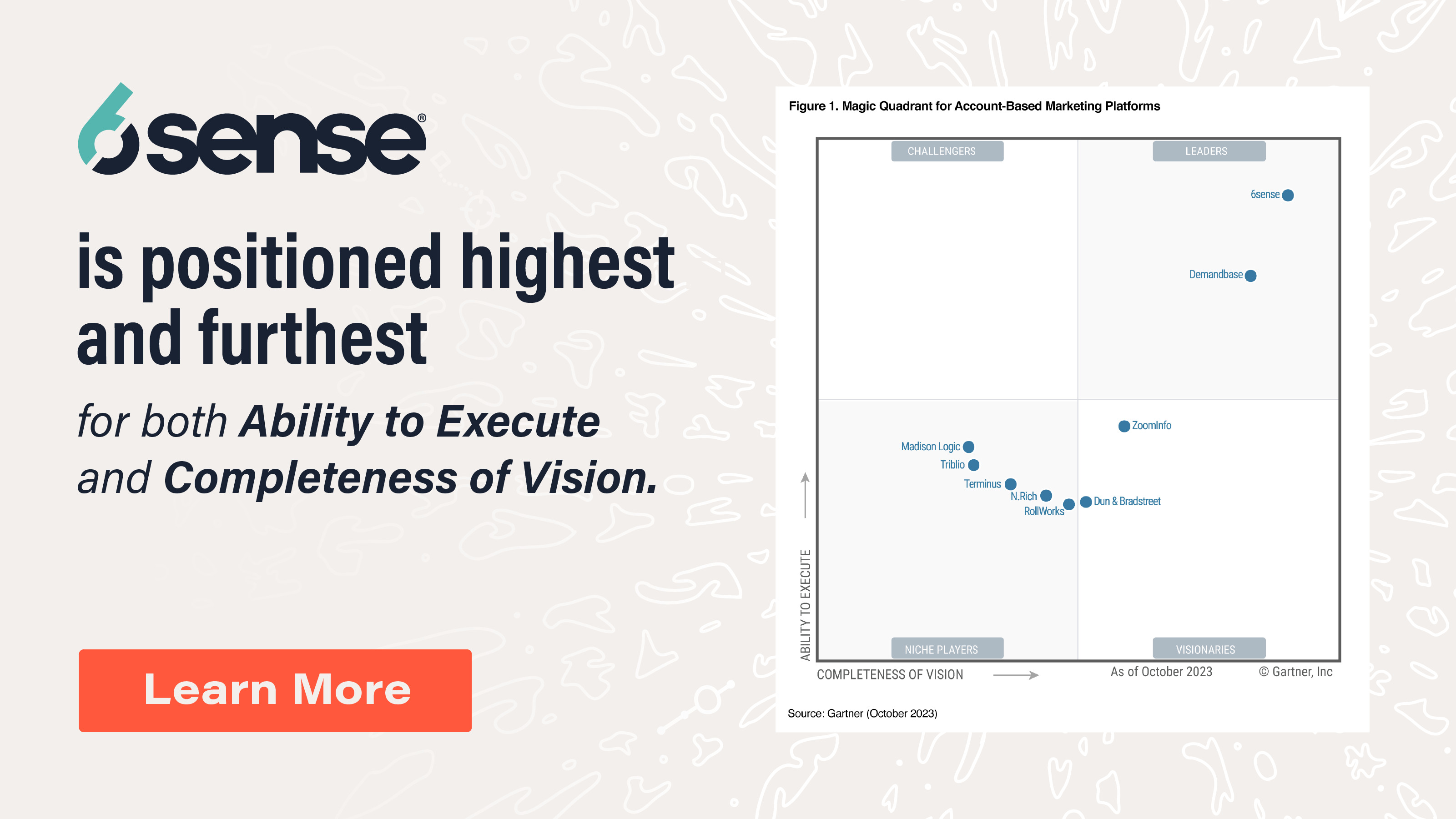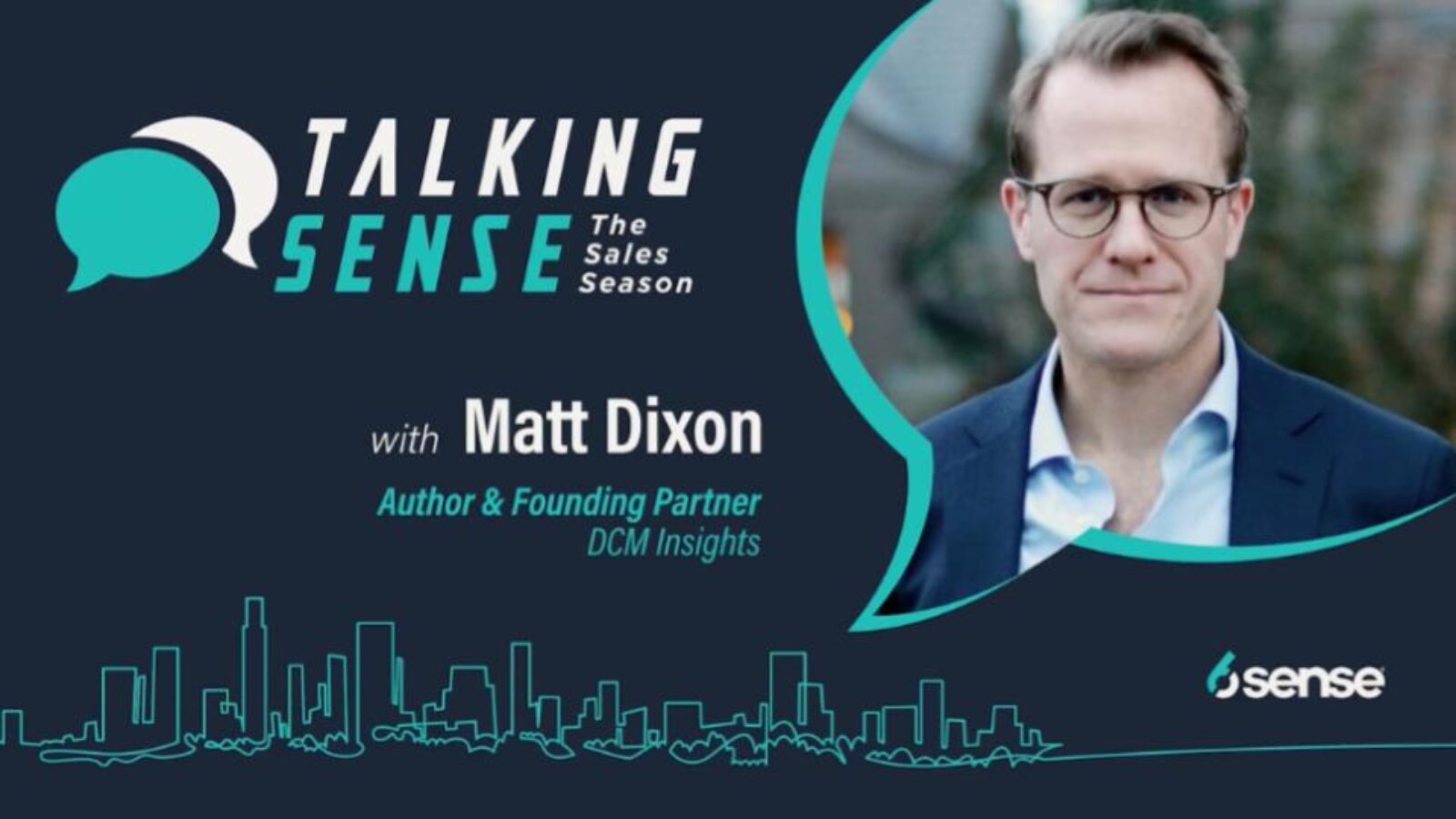Welcome to the thought leadership series TalkingSense, where 6sense CMO Latané Conant interviews B2B sales and marketing leaders about the challenges, strategies, and best practices facing revenue teams today. This season of TalkingSense focuses on sales leaders and their teams.
When 6sense CMO Latané Conant was putting together the first episode this season of TalkingSense, she knew she had to invite Matt Dixon to share his knowledge about what makes customers default to “no decision,” and how to win them over.
Dixon is a founding partner of the customer engagement research company DCM Insights, and author of two bestselling books on B2B sales, marketing, and customer success: The Challenger Sale and The JOLT Effect.
The entire conversation is full of smart insights. If you don’t have time to watch the video, here’s a quick summary of the key points:
Selling to FOMU Instead of FOMO
Salespeople, Dixon explained, try to sell to a fear of missing out (FOMO). But people don’t have FOMO. What they’re really afraid of is fear of messing up. That’s FOMU, and it’s totally different.
“Imagine the customer says yes to your solution and it totally goes sideways and it’s a colossal fail,” Davis explains in the interview. “That is an error of commission. Now, when you look at those two in the human mind, errors of commission are much more powerful for people — not just customers, for human beings.”
He continued: “We are okay with missing out on golden opportunities and failing to do things that are right and would be good for us. We are not okay with making wrong decisions and doing something that we’re personally responsible for. We’re not okay with messing up. So, FOMU is way more powerful than FOMO.”
FOMU leads to indecision, and sellers need to be equipped with a playbook for overcoming it. Dixon suggests his JOLT framework for helping customers move past their anxiety:
- Judge the level of indecision
- Offer your recommendation
- Limit the exploration, and then
- Take risk off the table
Underselling To Build Trust
If someone has been burned in the past by sales representatives, their “default posture as a customer is not to trust you,” Dixon explains.
They expect that you are going to try to oversell them, to encourage them to buy more in order to increase the contract value and your commission.
How to counteract that, according to Dixon?
“What best performers do is they establish a basis of trust right out front,” he says. “I know that’s an overused term in sales, but let me tell you specifically what they do, which is they will tell the customer stuff they shouldn’t buy.”
Moving Forward
Dixon shared that his team’s research shows that 40-60% of pipeline is not lost to a “no,” it’s lost to a no decision.
Conant and Dixon’s discussion centered around fear as the cause of that no decision — the fear of making the wrong choice, upsetting the status quo, and taking a hit to their professional credibility.
Customers often aren’t upfront about these anxieties because they don’t want to appear weak or indecisive, Dixon explains. As a sales representative, you have to listen closely for the anxieties that lurk beneath the conversation. When you think an anxiety may be stalling a decision, call it out as a common concern, then address it head-on.
Dixon and Conant discuss overcoming FOMU in more detail in the video.



